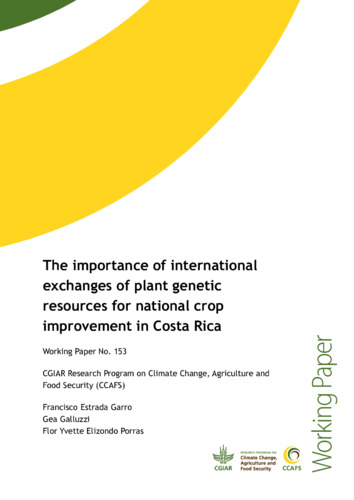The importance of international exchanges of plant genetic resources for national crop improvement in Costa Rica
One of the main considerations underlying the establishment of the International Treaty on
Plant Genetic Resources for Food and Agriculture and its Multilateral System of Access and
Benefit Sharing is the recognition of countries’ high interdependence on the genetic resources
of the crops and forages which they depend upon for their food security. A continued
appreciation of how countries have benefited from facilitated exchange of germplasm in the
past and are likely to continue doing so in the future is needed, in order to move forward the
implementation of the Multilateral System and creating a truly global pool of genetic
resources for countries’ agricultural development and adaptation to climate change. Using
Costa Rica as a case and rice and bean as key crops, the paper presents a picture of the
dynamics of their genetic resources, both inside and outside of the country, over past years
and into the future. It illustrates the extent to which Costa Rica is dependent upon germplasm
from other countries for its food security, and how, in a complementary manner, other
countries rely upon germplasm from Costa Rica. It is hoped that the information presented
here may encourage and facilitate the implementation of the International Treaty and its
Multilateral System in the country.

